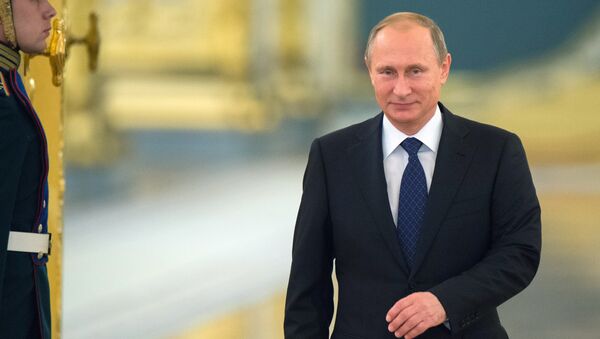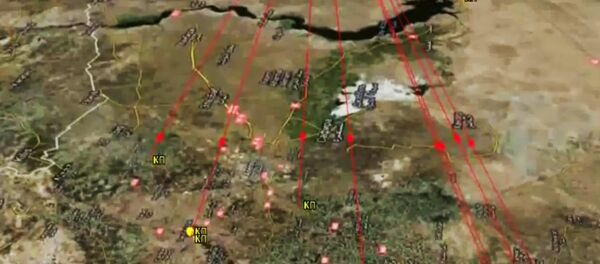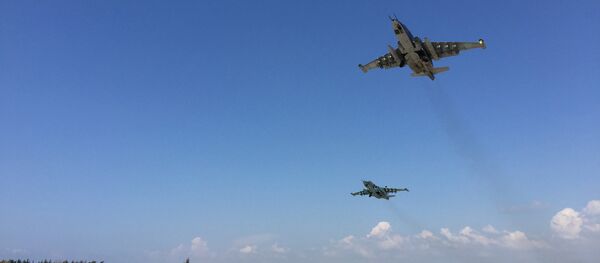With Russian missile strikes dealing significant damage to IS infrastructure in Syria, many Iraqis are beginning to question the effectiveness of the US-led coalition.
"I have been waiting for Russia to get involved in the fight against Daesh," Mohammed Karim Nihaya, a painter living in Baghdad, told Agence France-Presse, using the Arabic acronym for ISIL.
"They get results. The United States and its allies on the other hand have been bombing for a year and achieved nothing."
As he spoke, Nihaya applied the finishing touches to a portrait of Russian President Vladimir Putin.
He’s not the only one. Putinmania has swept across the Iraqi population.
"We should give Putin Iraqi and Syrian citizenship because he loves us more than our own politicians," Mohammed al-Bahadli, a student in Najaf, told AFP.
"Muslims bomb us because we are Rafidha," said Saad Abdullah, an Iraqi store owner, using a term employed by IS to refer to Shiites.
"Meanwhile Putin, who is an Orthodox man, is defending us…Maybe he really is a Shiite and we didn’t know it."
The Russian president has also become a bit of an Iraqi Internet celebrity, with some circulating rumors that Putin may be able to trace his roots back to the Middle East.
While in no way accurate, the story suggests that Putin’s father was an Iraqi grocer, who because of specializing in figs – “tin” in Arabic – he became known as "Abu Tin." Moving to the Soviet Union after World War II, he married "a blonde Russian girl" and named their child Abdulamir.
From there, Abdulamir Abu Tin was russified to Vladimir Putin.
The fiction proves the endearing support by the Iraqi people for the Russian airstrikes, and for "Putin the Shiite."
"I thank Putin because he convinced me to stay in Iraq," said Ali al-Rammahi, an Iraqi cab driver. "Hajji Putin is better than Hussein Obama."
On Wednesday, Iraq’s defense and security committee indicated that it may ask Russia for air support in combating IS, according to committee head Haqim Zamli.
"Iraq may turn to Russia with a request to conduct airstrikes against the positions of Islamic State militants in Iraq if Russia is successful in Syria, that is if the airstrikes are effective and actual, and if we see that Russia [is operating] effectively in Syria," Zamli told Sputnik.
The Russian Defense Ministry has not responded to those claims, as it has not yet received a formal request from the Iraqi government.





